Arindam Sarkar
Secured Wireless Communication using Fuzzy Logic based High Speed Public-Key Cryptography (FLHSPKC)
Nov 09, 2012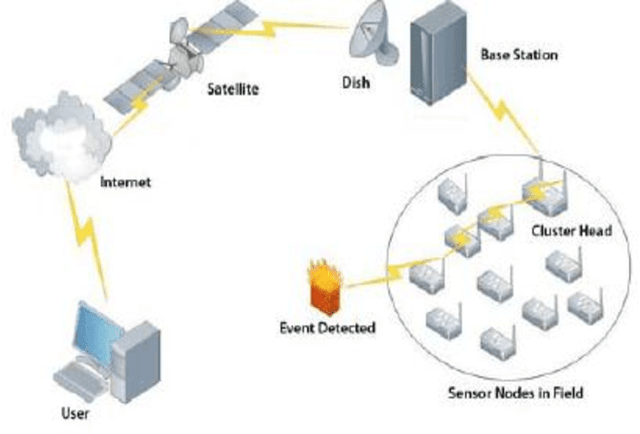
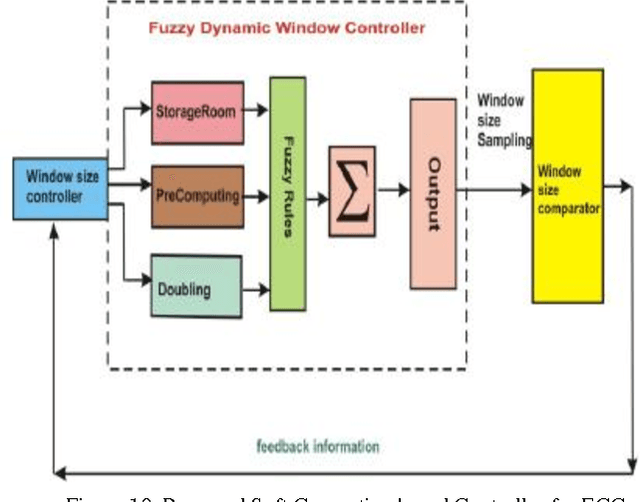
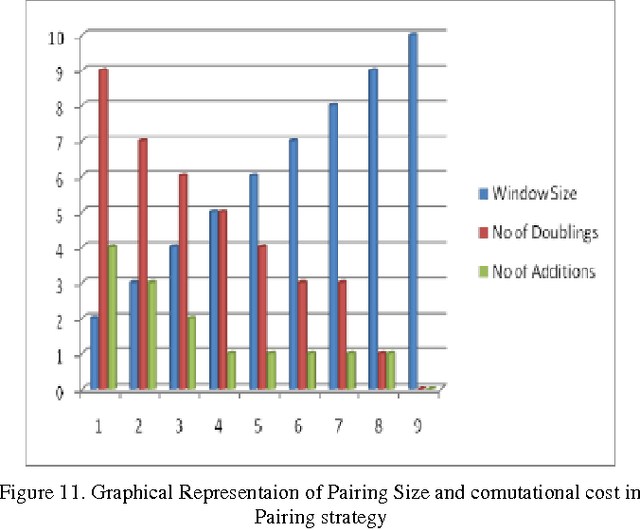
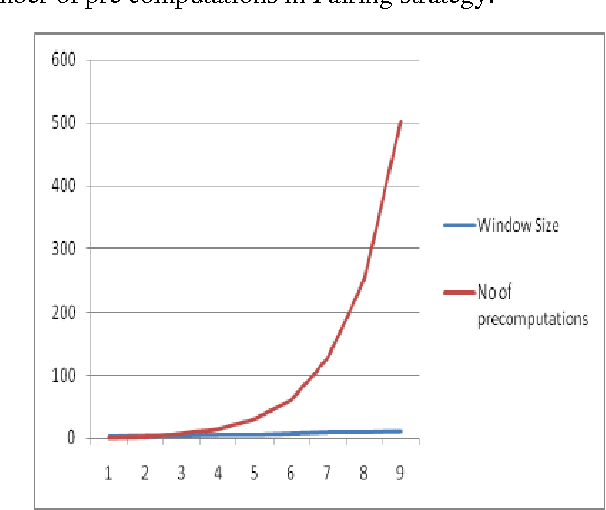
Abstract:In this paper secured wireless communication using fuzzy logic based high speed public key cryptography (FLHSPKC) has been proposed by satisfying the major issues likes computational safety, power management and restricted usage of memory in wireless communication. Wireless Sensor Network (WSN) has several major constraints likes inadequate source of energy, restricted computational potentiality and limited memory. Though conventional Elliptic Curve Cryptography (ECC) which is a sort of public key cryptography used in wireless communication provides equivalent level of security like other existing public key algorithm using smaller parameters than other but this traditional ECC does not take care of all these major limitations in WSN. In conventional ECC consider Elliptic curve point p, an arbitrary integer k and modulus m, ECC carry out scalar multiplication kP mod m, which takes about 80% of key computation time on WSN. In this paper proposed FLHSPKC scheme provides some novel strategy including novel soft computing based strategy to speed up scalar multiplication in conventional ECC and which in turn takes shorter computational time and also satisfies power consumption restraint, limited usage of memory without hampering the security level. Performance analysis of the different strategies under FLHSPKC scheme and comparison study with existing conventional ECC methods has been done.
* 9 pages
Energy Efficient Wireless Communication using Genetic Algorithm Guided Faster Light Weight Digital Signature Algorithm (GADSA)
Aug 11, 2012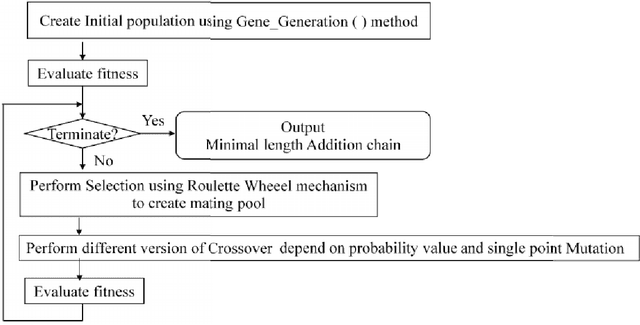


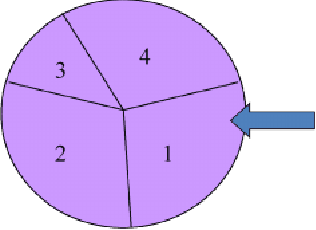
Abstract:In this paper GA based light weight faster version of Digital Signature Algorithm (GADSA) in wireless communication has been proposed. Various genetic operators like crossover and mutation are used to optimizing amount of modular multiplication. Roulette Wheel selection mechanism helps to select best chromosome which in turn helps in faster computation and minimizes the time requirements for DSA. Minimization of number of modular multiplication itself a NP-hard problem that means there is no polynomial time deterministic algorithm for this purpose. This paper deals with this problem using GA based optimization algorithm for minimization of the modular multiplication. Proposed GADSA initiates with an initial population comprises of set of valid and complete set of individuals. Some operators are used to generate feasible valid offspring from the existing one. Among several exponents the best solution reached by GADSA is compared with some of the existing techniques. Extensive simulations shows competitive results for the proposed GADSA.
* 17 pages
 Add to Chrome
Add to Chrome Add to Firefox
Add to Firefox Add to Edge
Add to Edge